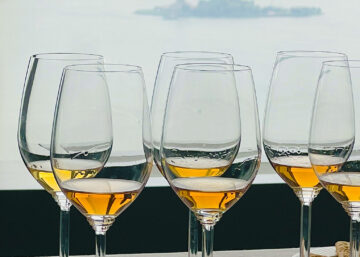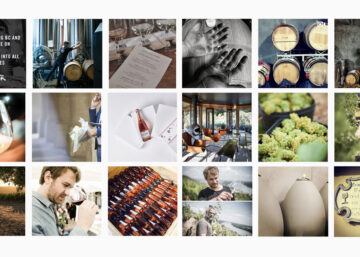Israeli wine is maturing, coming into its own. Winemakers are learning to ease off the barrel and trying their best to maintain as much acidity as possible. And where heat plays against them, innovation is on their side. If anyone is going to make wine in less than favorable conditions, it’s the Israelis.
I’m hard on Middle-Eastern wines for the most part, but my last two trips have left me hopeful. In fact, I’m almost as intrigued by the wines as I am by the food…almost. I generally just say yes to these trips for the food, for all the fresh ingredients. I’m telling you, something seriously special is going on with their tahini! A dip in the Mediterranean also never hurts…
HOPE
-
Hopeful about the transition from jammy to ripe fruit.
I’m finding that overall, the wines are dryer and more earth-driven than in the past. Of course you can always expect ripe fruit, it’s hot and sunny there, that’s what happens. However, through better canopy management, picking earlier and planting at higher altitudes, we’re leaving the strawberry jam behind. Thanks be to Bacchus!
-
Hopeful because that slight metallic finish that I used to regularly refer to when blinding Israeli wine has more or less dissipated.
Good for the wine, bad for the blind. I suspect it has to do with better yeast selection and in the best cases, more use of natural yeasts, along with a deeper understanding of how to make good wine.
Ok, they’ll get all romantic about wine being a part of their story for thousands of years, but the fact is, it wasn’t until the late 1800’s that Mr. Rothschild reignited the industry. And truly, it wasn’t until the past 20 years that we’ve seen something worth drinking beyond religious obligations.
-
Hopeful to see winemakers choosing more of what works over what sells.
Israeli Pinot Noir is never going to be the ticket. NEVER. So it’s been great to see more and more Argaman and Carignan on the scene, grapes that can tolerate heat and drought. When in the Mediterranean, go Mediterranean.
-
Hopeful to see producers exploring and learning the ways of their indigenous varieties such as Zuriman and Bittuni.
They’re indigenous for a reason, and I love to see the world as a whole embracing their roots more. Just saying, Sumoll from Penedés…helloooo! Gva’ot Winery is making some great examples.
I may never be their strongest advocate, but Israeli wines are definitely worth trying, especially the premium ranges from producers like Matar, Dalton and Flam—in July 2022, I tried a Flam 2010 Sauvignon Blanc/Chardonnay blend that was still holding its own, still very much alive. That was exciting! And shout out to all my boutique loves doing fun projects, such as Beit El and Jezreel.
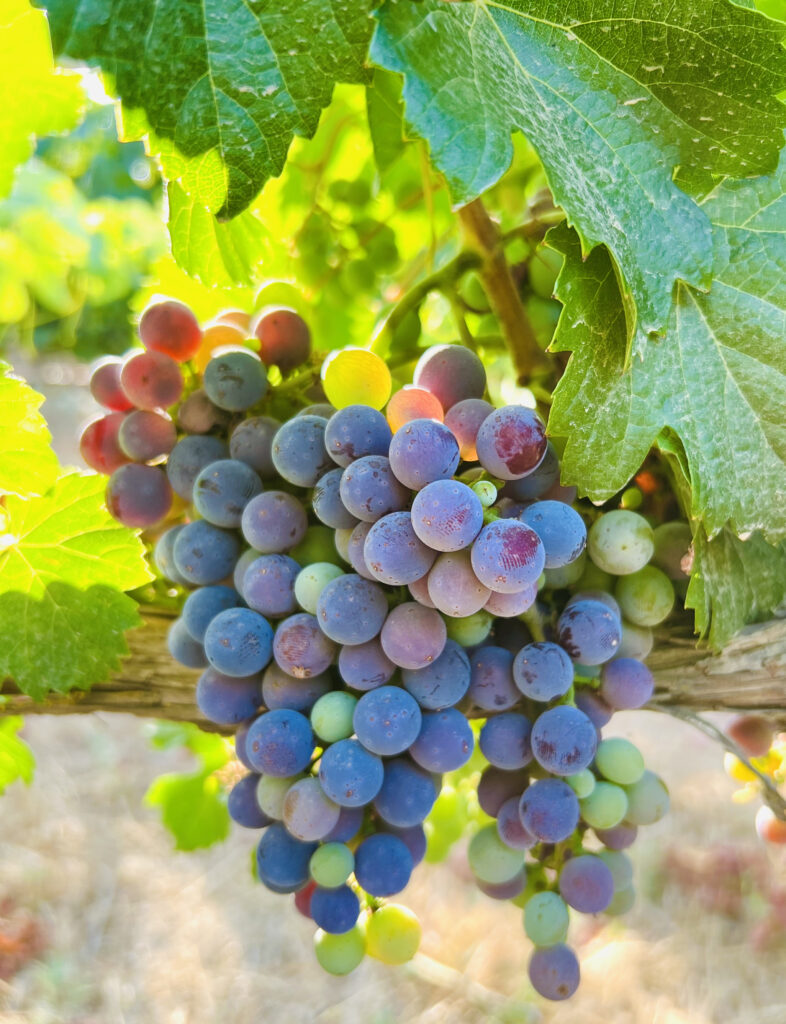
As most Israeli wines are kosher, I recommend trying their non-mevushal wines to get a real taste.
Mevushal literally means “cooked,” and it’s the process of making wine so that anyone can handle it, whereas non-mevushal can only be touched by Sabbath-observant Jews. You can still drink it, they just technically have to serve it. It was at Château Léoville-Poyferré in Saint-Julien when it first occurred to me to touch the bottle and therefore have it all to myself…mwah, ha, ha.
Back in the day, they actually boiled the wine, but now they use flash-pasteurization or flash détente thermovinification. Granted, some non-kosher wineries use this process as well, especially in the US, as it is quite helpful in covering up flaws and creating those big round fruit bombs the mainstream American palate loves. But I don’t recommend it if you actually care about drinking wines with a sense of place.
Wine is a living, breathing liquid, and in my opinion, bringing it to 180ºF for however short a time strips the wine of its identity and leaves us with an inky sauce that is technically correct but boring.
I’ve been working with New York kosher wine retailer Moishe Mayer for many years now, and I’ve tried the gamut. There is definitely great kosher wine out there, but I am confident that non-mevushal is the way to go. So go that way.
And though not all Israeli wine is kosher—enter in the lovely team at Pelter, for example—the majority is, so it pays to know a thing or two about it if you’re going to visit.
Go try some Israeli wine!

With the future of Beit El Winery.
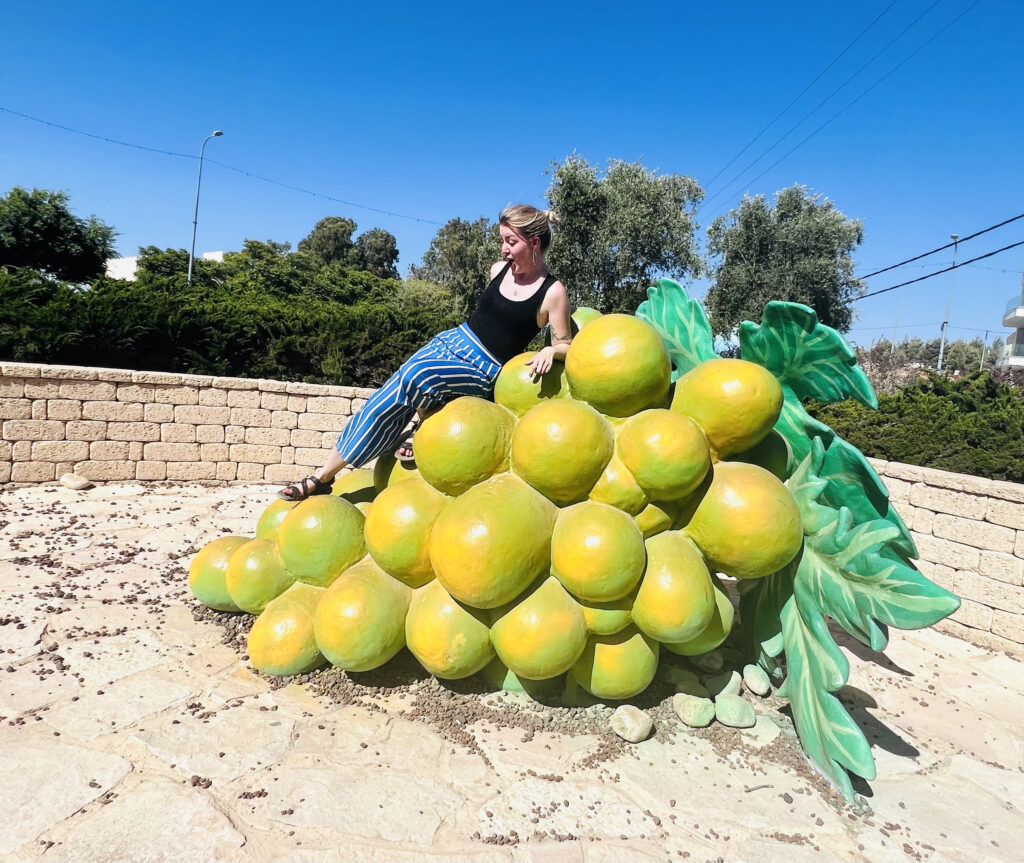
Grapes.
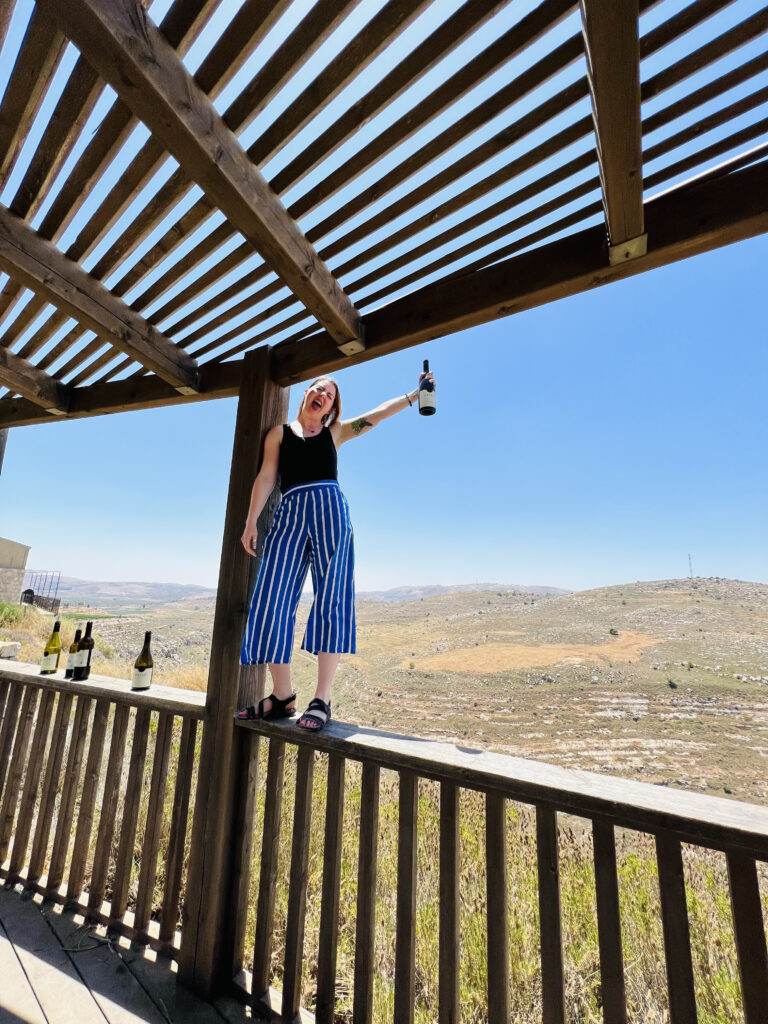
At Gva’ot Winery.
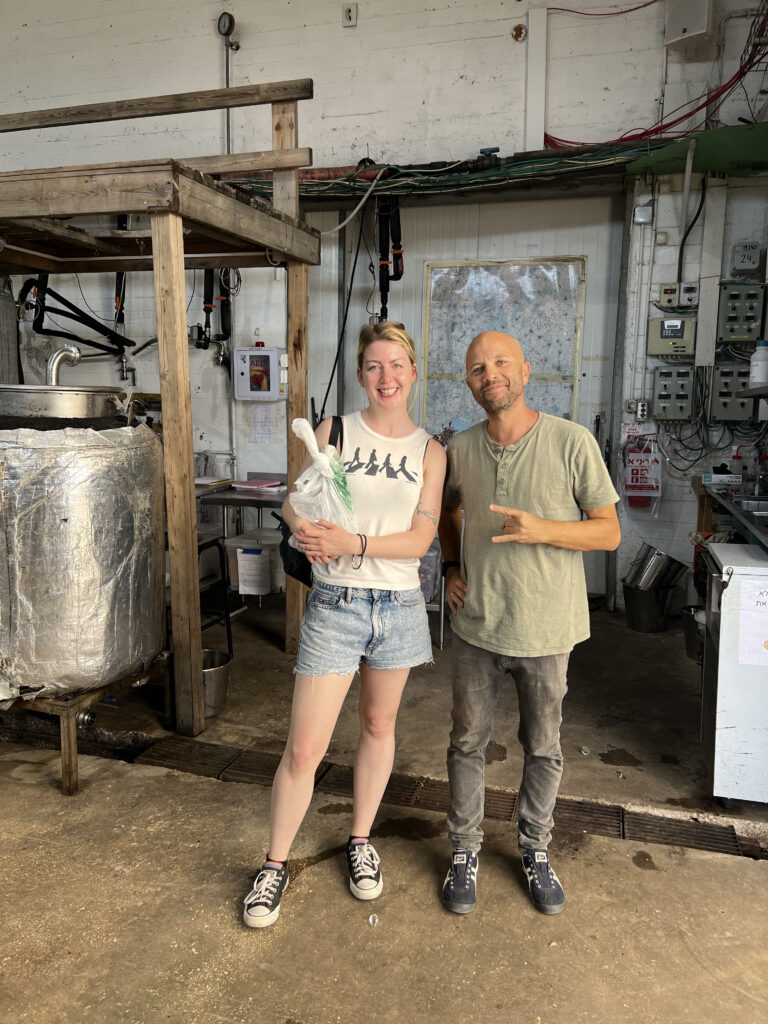
With Gal from Pelter Winery.
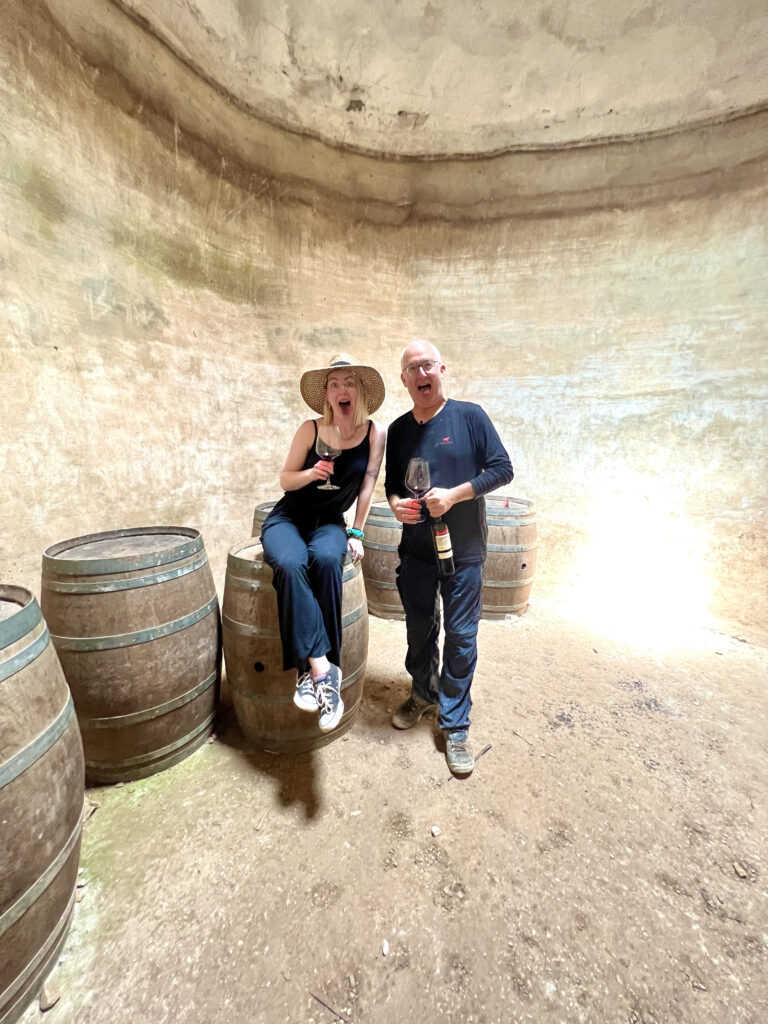
With Shiloh winemaker Amichai Lourie.
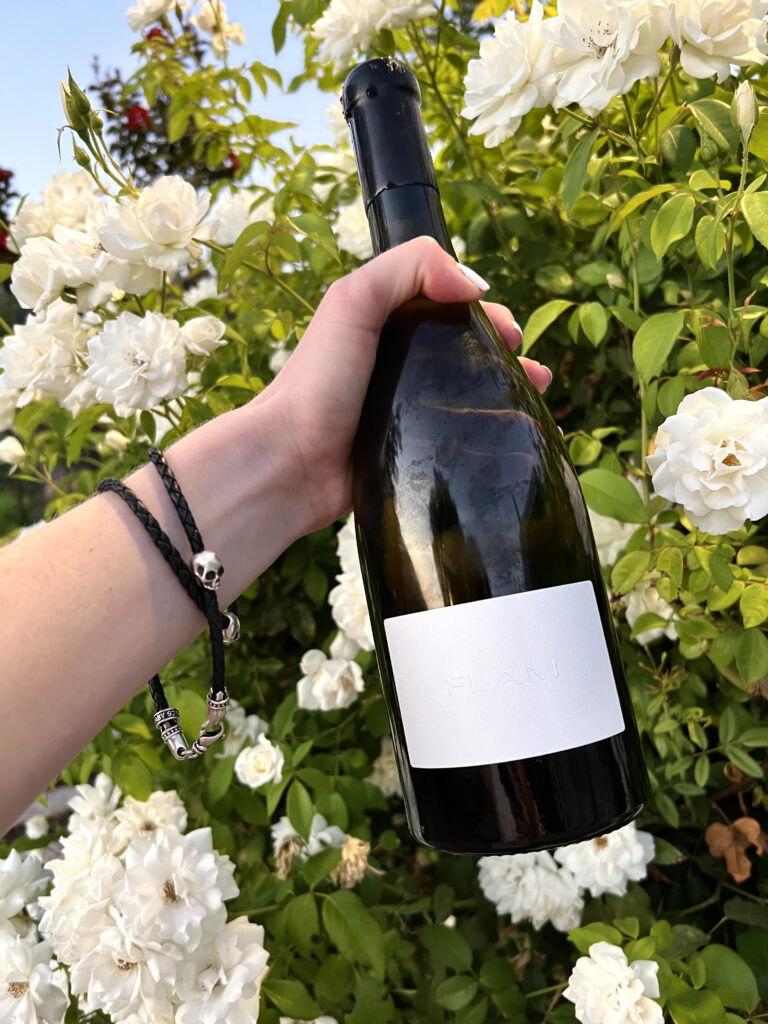
Flam is making great juice.
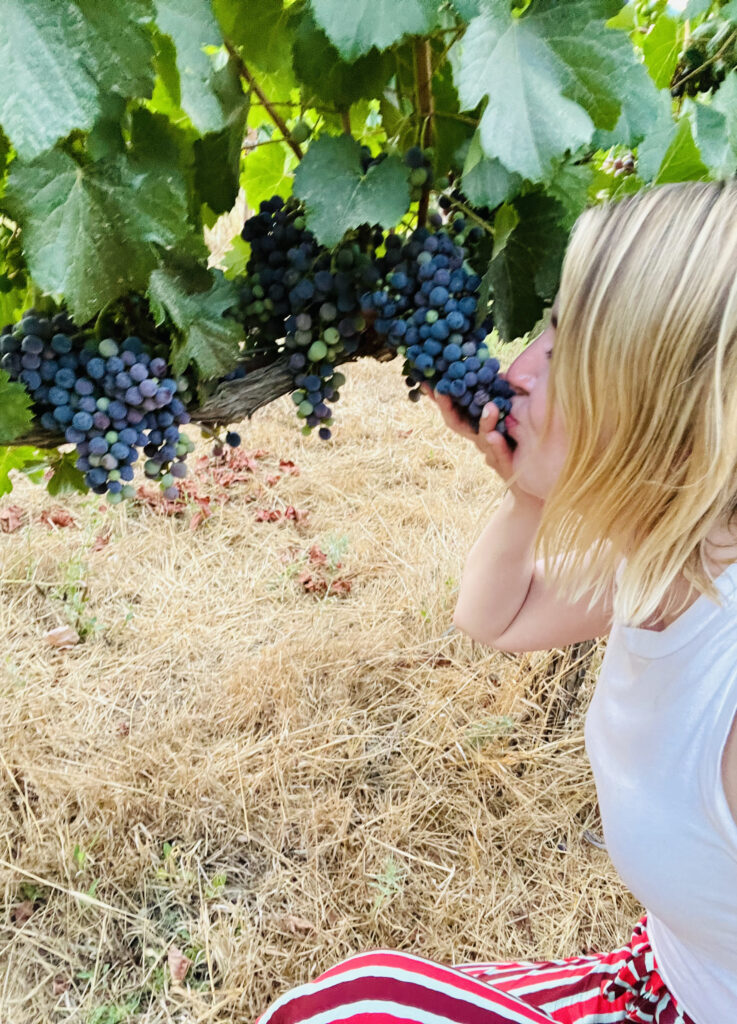
Flam grape moments.

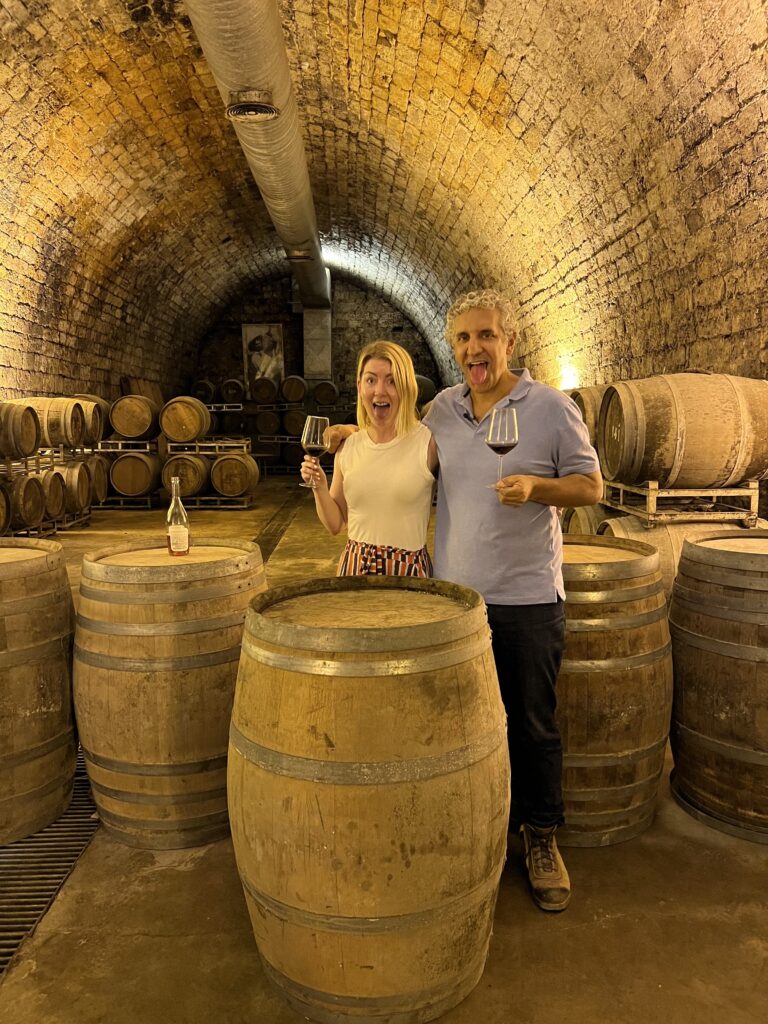
With Carmel winemaker Yiftah Peretz.
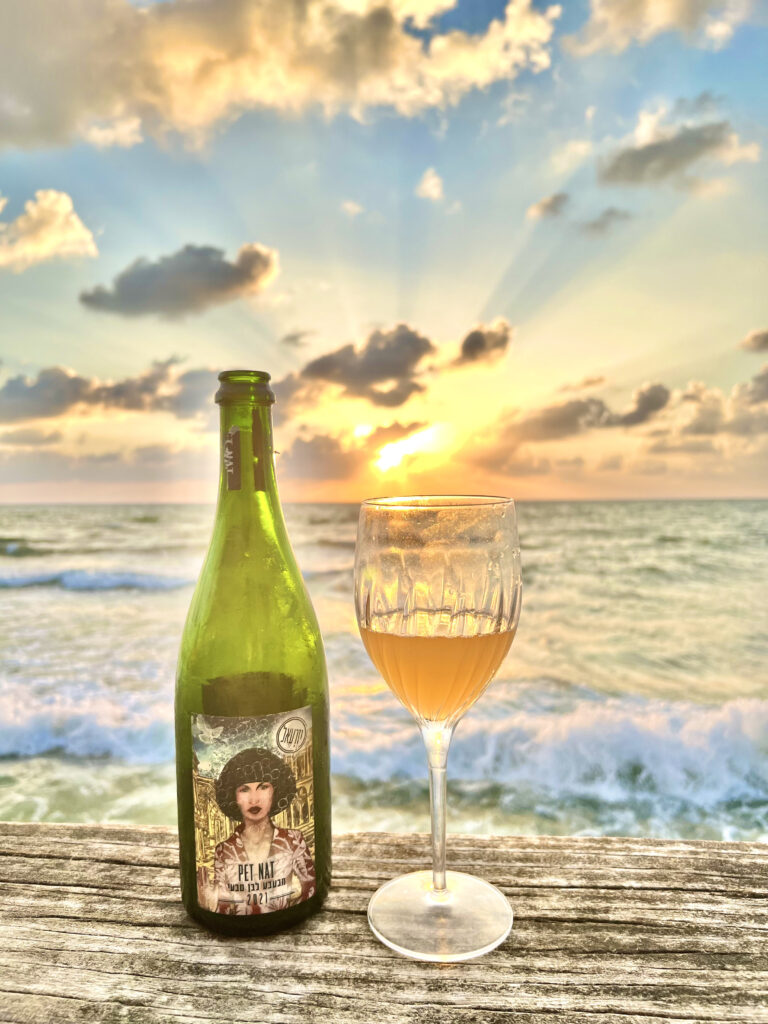
Some serious delicious Jezreel Pet Nat.
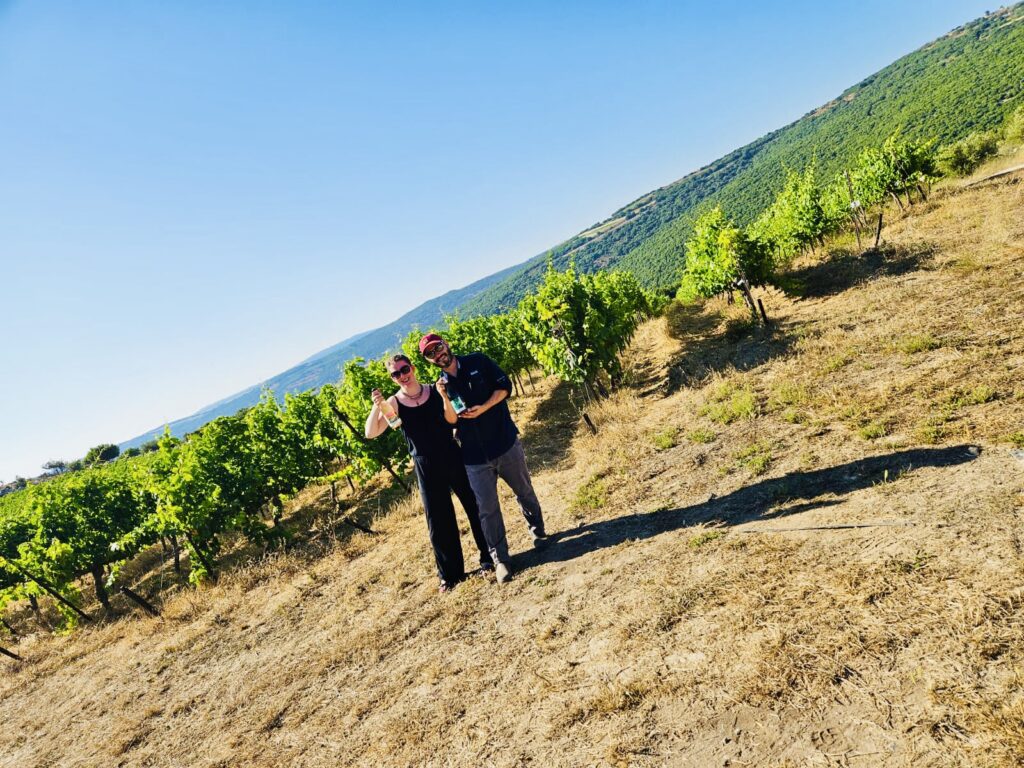
With Dalton winemaker Guy Eshel.

Dalton Winery.

